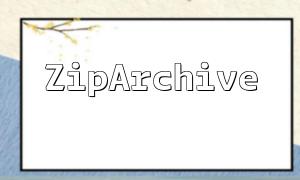In web applications, sessions are crucial for tracking user state and storing information. However, due to the open nature of the web, session data is vulnerable to cross-domain attacks. This article shares practical and commonly used security techniques in PHP, complete with code examples.
Session IDs are typically stored in cookies. To prevent cross-domain attacks, enhance security by configuring cookie attributes. The key attributes include:
Example code:
session_start(); <p>// Get current cookie parameters<br> $cookieParams = session_get_cookie_params();</p> <p>// Set secure cookie attributes<br> session_set_cookie_params(<br> $cookieParams["lifetime"],<br> $cookieParams["path"],<br> $cookieParams["domain"],<br> true, // Secure<br> true // HttpOnly<br> );</p> <p>$_SESSION["username"] = "user123";</p> <p>session_write_close();<br>
Check the origin domain of requests to ensure session operations happen only under authorized domains, reducing the risk of cross-domain attacks. Use $_SERVER['HTTP_REFERER'] as follows:
if (isset($urlParts['host']) && $urlParts['host'] === $allowedDomain) {
return true;
} else {
return false;
}
}
// Usage example
if (validateReferer("example.com")) {
// Proceed with session operations
} else {
// Illegal origin, deny access or show error
}
Create a unique token per session that clients send with requests. The server validates token consistency to block forged requests:
// Generate token
function generateToken() {
$token = bin2hex(random_bytes(32));
$_SESSION["csrf_token"] = $token;
return $token;
}
<p>// Validate token<br>
function validateToken($token) {<br>
return isset($_SESSION["csrf_token"]) && $_SESSION["csrf_token"] === $token;<br>
}</p>
<p>// Generate token and output it into a form<br>
$token = generateToken();</p>
<p>echo '<form method="post">';<br>
echo '<input type="hidden" name="csrf_token" value="' . $token . '">';<br>
echo '<input type="submit" value="Submit">';<br>
echo '</form>';</p>
<p>// Validate token on request handling<br>
if (isset($_POST["csrf_token"]) && validateToken($_POST["csrf_token"])) {<br>
// Token valid, execute operation<br>
} else {<br>
// Token invalid, deny operation<br>
}<br>
By properly setting cookie attributes, verifying request origins, and implementing token mechanisms, you can effectively protect PHP sessions from cross-domain attacks. It is recommended to tailor these measures to your specific application needs and continuously update your security practices to safeguard user data and privacy.
Related Tags:
Session








